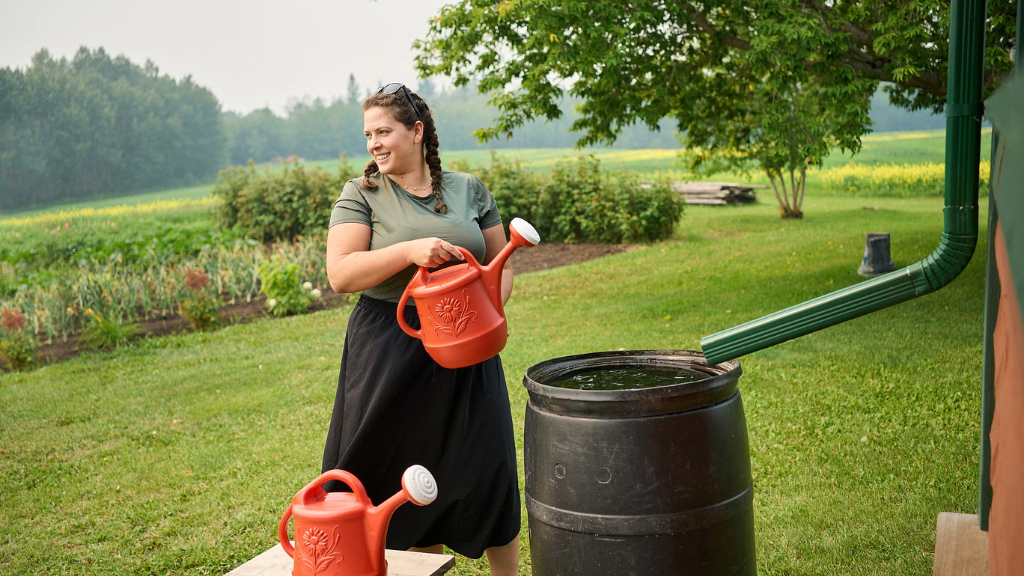The Future Of Gardening Is Sustainable


Sign up for the Gardening Know How newsletter today and receive a free copy of our e-book "How to Grow Delicious Tomatoes".
You are now subscribed
Your newsletter sign-up was successful
All industries engage in some type of trend forecasting—often at the end of the year. Gardening is no different. You can find all kinds of trends lists for the coming year and growing season. Looking to the future, some trends seem more destined to last. As people become more aware of how they impact the environment, sustainability seems like it’s here to stay.
Trends in 2023
A quick search of gardening trends for the coming year list a lot of things. Forecasters believe people will create more relaxing retreats in their yards, focus on saving water, and develop more simple, streamlined, and low-maintenance gardens.
There are also a lot of smaller, more specific trends regarding color and plant types. Ultimately, the most important trend, the one with staying power is sustainability.
The growing climate crisis, news stories about garbage in the ocean, and the accelerating rate at which species are becoming endangered and extinct are all driving people to embrace sustainability.
Studies show that a growing number of consumers are more willing than ever to pay more for sustainable products. This trend can be extended to all areas of a person’s life, including in the garden.
I think a lot of factors will be wrapped up in this growing trend toward sustainability when it comes to gardening:
- DIY Gardens -- People will be more involved in their own outdoors spaces. Instead of relying so much on landscapers and garden services to create and maintain their gardens, more people will DIY it. I think homeowners want more control over their yards and what goes into them.
- Just Say No to Grass -- Lawns will get smaller, be less common, and become more natural. A traditional turf lawn is the exact opposite of sustainable. It’s typically not native; it’s a monoculture; and it requires a lot of resources. As people become more aware of how their yards impact the environment, they begin to reject the idea of a “perfect” lawn of solid green.
- Going Native Gardeners -- will continue to embrace native species for many reasons. Native plants are more sustainable because they require fewer resources to thrive. They don’t need regular watering or fertilizer. Native species also support the local ecosystem, benefitting insects, pollinators, and other wildlife.
- Growing Food -- The pandemic and its resulting shortages at the grocery store pushed a lot of people to start growing food. I think this trend will continue. Growing vegetables is more eco-friendly because it’s so hyper local. Gardeners also have more control over what goes into their food and can ensure their veggies are grown organically and sustainably.
- Water Shortages -- Many locations around the U.S. and the world have experienced increasing water shortages in the last few years. Gardeners in these areas save water by necessity, but they also inspire the rest of us. When watching the news and seeing raging forest fires and water restrictions, many gardeners in other areas will begin to realize how precious a resource water is. Native species, drip irrigation, minimizing lawns, and collecting rainwater are all ways gardeners can be more economical with water.
- Keep it Simple -- Gardens don’t have to be elaborate or overcomplicated to be enjoyable, and I think more people are realizing that. Many have had financial struggles over the last few years, and spending money on an over-the-top garden just doesn’t make sense. If you can simplify your garden, you kill two birds with one stone: make it more sustainable and save money.
Thanks to the pandemic, more people than ever have embraced their yards and gardens as necessary retreats. When we couldn’t go anywhere, our own backyards became sanctuaries. People will continue to embrace this space and pay more attention to how their choices affect the planet.
Sign up for the Gardening Know How newsletter today and receive a free copy of our e-book "How to Grow Delicious Tomatoes".

Mary Ellen Ellis has been gardening for over 20 years. With degrees in Chemistry and Biology, Mary Ellen's specialties are flowers, native plants, and herbs.